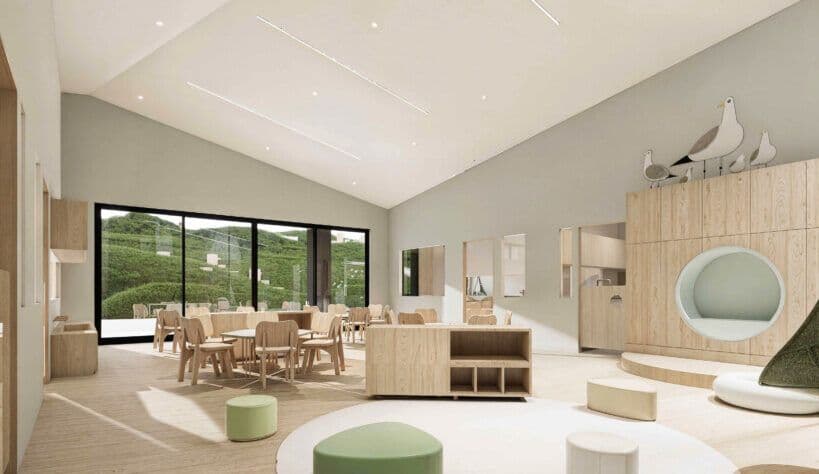In The Field
Practice
Property
Provider
Quality
Research
Sustainable design shaping the future of early learning environments

Fiona Alston
Jul 31, 2025
Save
Innovative centre design is reshaping early learning settings, blending safety, sustainability and flexibility to support children’s development and educators’ wellbeing.
The layout and fit‑out of a childcare centre do far more than please the eye. Thoughtful design shapes the physical, social and emotional spaces in which children grow, educators work and families connect. Since the beginning of 2025 designers have pushed boundaries, pairing evidence‑based practice with fresh ideas to meet National Quality Framework (NQF) requirements particularly Quality Area 3: the physical environment while also responding to rising sustainability expectations.Children learn best in environments that feel safe, are easy to navigate and offer age‑appropriate challenges. High‑quality design therefore prioritises:
- non‑toxic materials and secure, clearly marked entry points
- barrier‑free access so that children of all abilities move freely
- diverse learning zones that invite quiet reflection, energetic play and everything in between.
Early Learning centre design and development consultants, Mollard Property Group notes several trends that place children and educators at the heart of every decision:
- flexible zones accommodate changing activities and group sizes
- sensory‑rich finishes, natural textures, calming colours and interactive walls, stimulate exploration
- biophilic elements such as timber, stone and indoor planting deepen children’s connection to nature
- acoustic treatments absorb excess noise and support concentration
- evidence‑based colour palettes use warm neutrals to soothe and vibrant hues to energise.
Digital tools now improve both pedagogy and protection:
- smartboards and interactive tables expand curriculum possibilities
- secure electronic sign‑in and monitoring systems give families peace of mind
- age‑appropriate apps and devices personalise experiences while safeguarding privacy.
Designers embed environmentally responsible choices from day one:
- high ceilings, strategic window placement and insulation maximise natural light and airflow
- solar panels, rainwater harvesting and low‑flow fixtures cut long‑term running costs
- finishes with low volatile organic compounds (VOCs) promote healthier indoor air quality.

Purpose‑built gardens extend learning beyond the walls:
- nature playgrounds encourage risk‑based physical play
- sensory gardens combine texture, scent and sound for rich discovery
- outdoor learning stations support STEM, environmental and sustainability education.
Universal design ensures every child feels welcome:
- ramps, wide doorways and height‑adjustable fittings enable independent movement
- quiet nooks provide relief for children who need sensory regulation
- inclusive playgrounds invite cooperative play among children with diverse abilities.
Educators deliver quality outcomes when their workplace supports them:
- ergonomic furniture and daylight in staff areas reduce fatigue
- multipurpose break‑out rooms host planning sessions, collaboration and rest
- open sightlines allow educators to supervise effectively while engaging with children.
Flow matters. Centres increasingly adopt:
- logical links between learning rooms, amenities and outdoor spaces
- tailored zones for infants, toddlers and preschoolers to meet developmental needs
- transparent walls that maintain safety while preserving an open, connected feel.
A comfortable, professional environment is key to attracting and retaining talent in a competitive market. Investment in high‑quality staff facilities signals respect, fosters job satisfaction and, in turn, promotes stronger educator and child relationships. Families notice the difference; engaged, consistent educators build trust and enrich the centre’s reputation.

Design that balances learning, sustainability and wellbeing positions centres for a resilient future. By embracing flexible, inclusive and environmentally responsible principles today, providers create places where children thrive, educators excel and communities feel welcome.
The original article from Mollard Property Group can be accessed here.
Don’t miss a thing
Related Articles



















